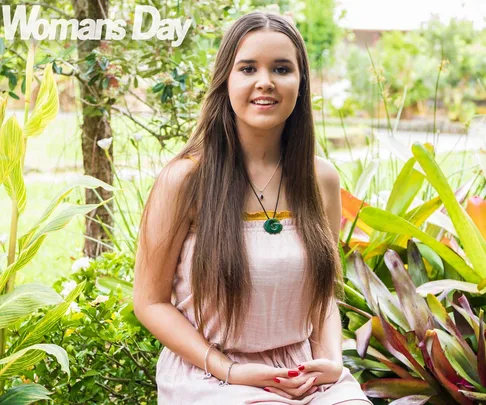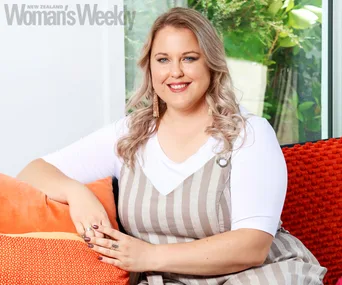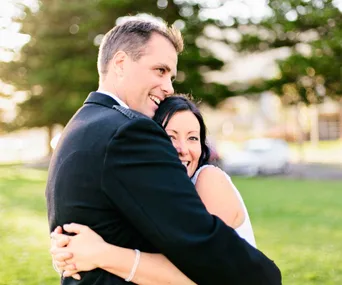Dressed in an embellished blush ball gown, high school student Hollie Snell beamed as her name was called out. She’d just been announced princess of her first Te Puke school ball. She was pretty and caring, a dedicated pupil pushing towards her dream of youth work.
But on a Sunday morning in November, four months later, everything the teenager knew changed.
After a getaway for an 18th birthday party and a visit to her aunt, Hollie and some friends spent a day at Kerosene Creek, near Rotorua. The four laughed and swam in the natural hot pool until it was too late to travel home, so they slept in their car and left early the following morning.
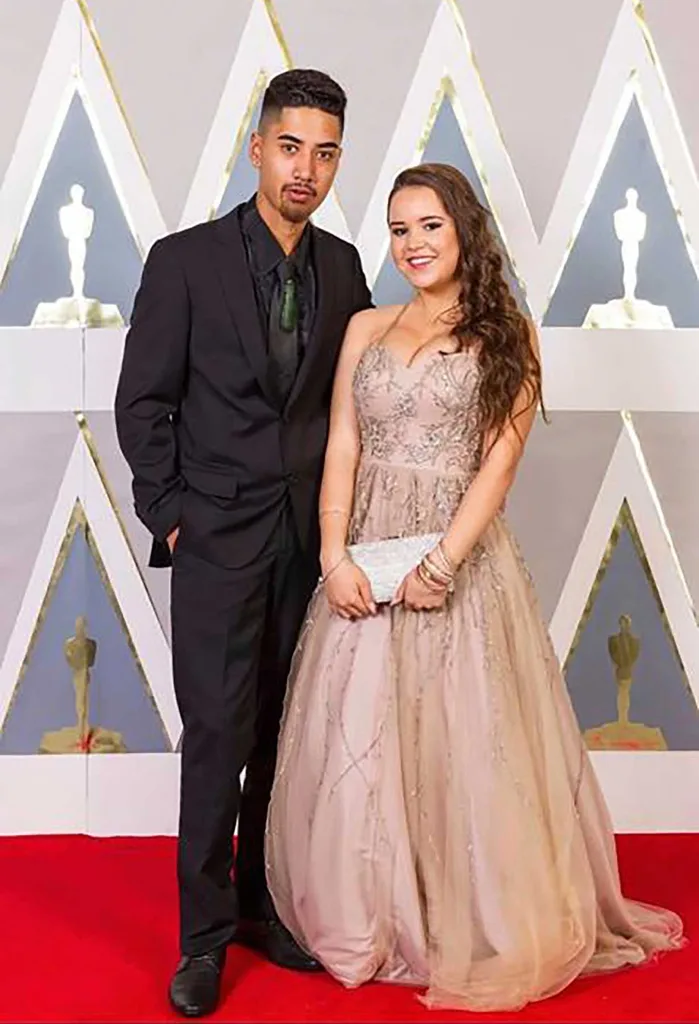
Sweethearts Hollie and Keani at the ball before the accident. The devoted teen travels to see his girlfriend every weekend.
Hollie, now 17, her boyfriend Keani Walters, 18, and another couple only made it halfway home. Around 7.15am, on a quiet stretch of highway at Okere Falls, their car was involved in a fatal head-on crash.
An occupant of the other car was tragically killed and the accident is still being investigated by police.
Hollie suffered a critical brain injury. The witty teen, with a love for fashion, make-up and children, was intubated and rushed to Rotorua Hospital, where she was placed on life support and airlifted to the intensive care unit at Waikato Hospital.
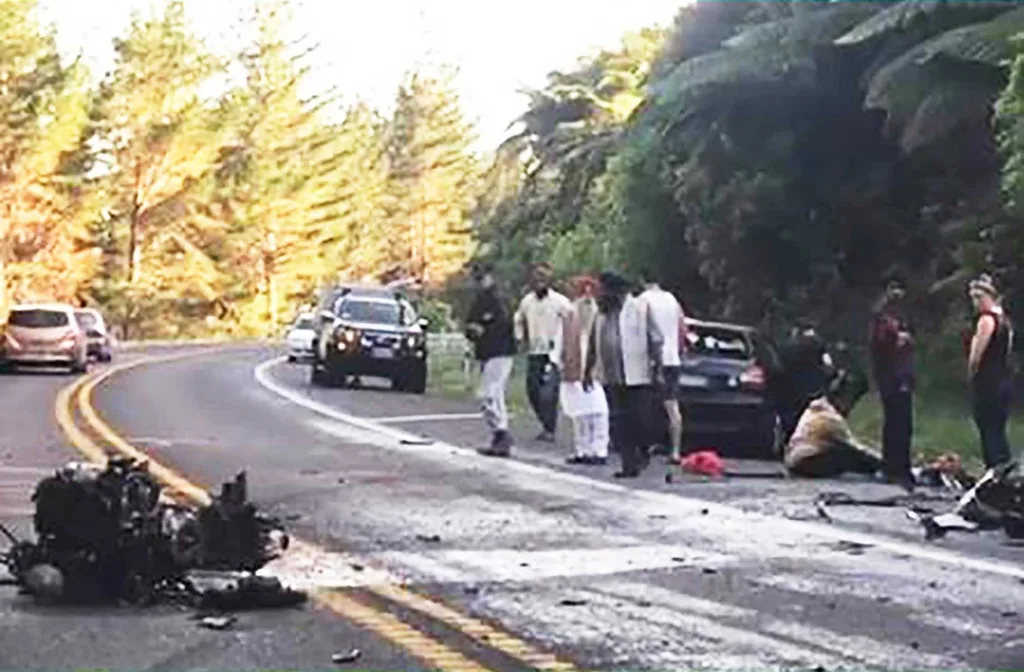
The horror crash scene.
Back in Te Puke, her mum Dale was dashing out the door in a mad panic with Hollie’s dad David, 52, and sisters Larnie, 27, and Samantha, 14. Keani’s mother had called to say the teens had been in an accident.
“We were in bed, so we threw clothes over our pyjamas and shot off down the road, not knowing how bad it was,” recalls Dale, 52, sharing her daughter’s dramatic story exclusively with Woman’s Day.
Declined entry to the crash scene by emergency services, the family eventually contacted a friend at the St John Ambulance dispatch, who informed Dale her daughter was in an extremely critical condition.
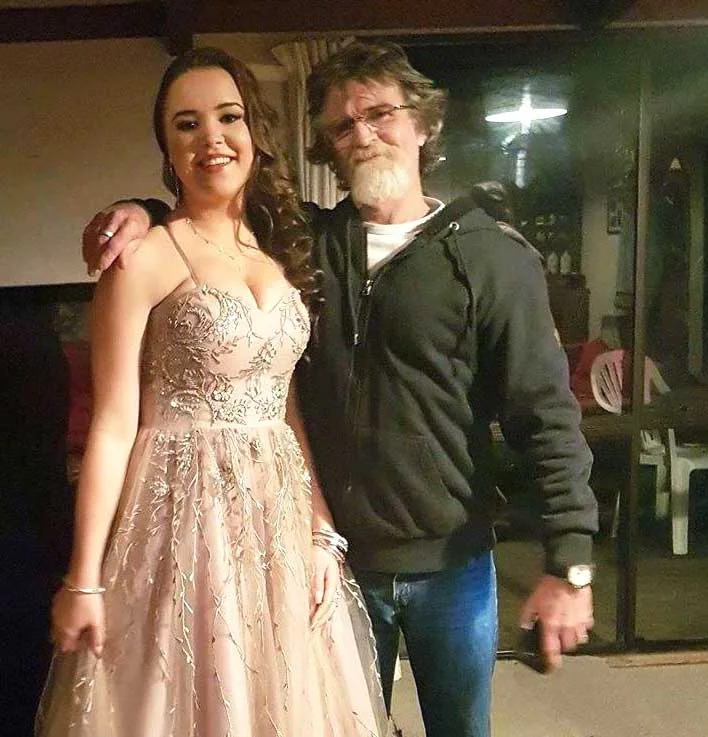
On ball night with dad David.
“Hearing that was a total nightmare and we were on prayer mode,” says Dale. “I’m not very religious, but there you have it – you do start praying. The whole way to Waikato Hospital in the car, we sat in silence.”
Lying in a hospital bed, tubes filling her lungs with oxygen and heartbroken family gathered around her, Hollie’s brain continued to swell. She still looked the same, apart from grazing and impact wounds beneath her chin, and her prized long hair was pulled up off her face.
But Hollie’s brain was riddled with dozens of tiny tears and a serious left-side bleed. Doctors told her devastated whanau she’d be lucky to survive the night.
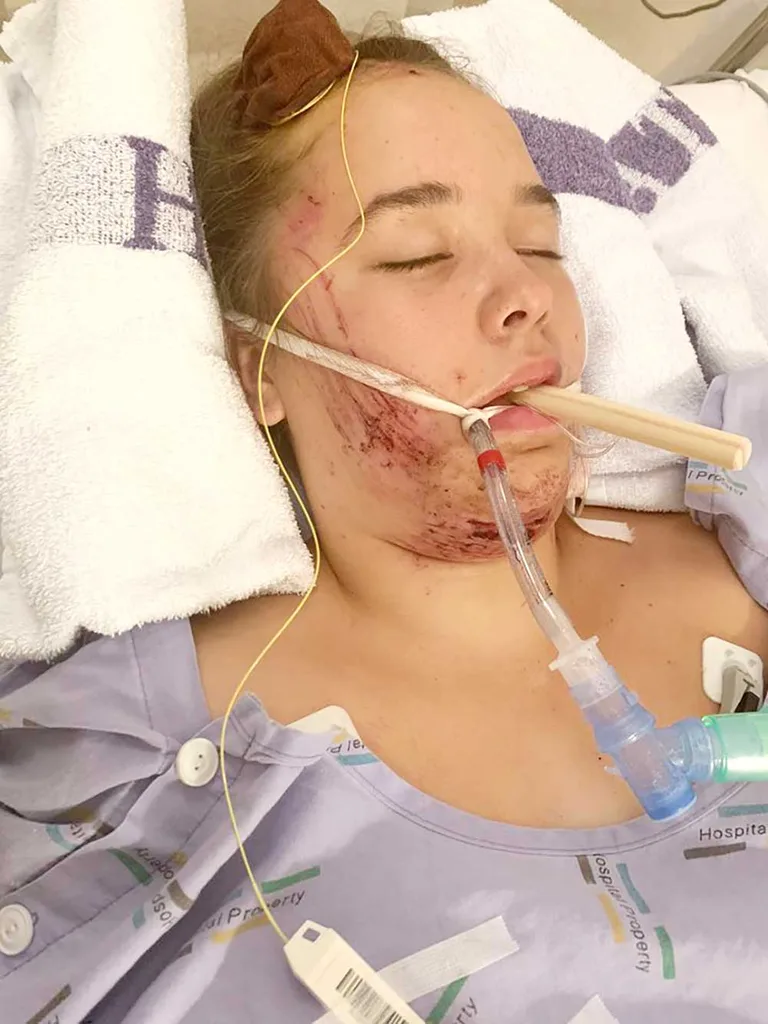
Dale wipes away the tears as she chats with us at Auckland’s ABI Rehabilitation Centre, sitting alongside Hollie, who adds short replies to the conversation, her pretty expression unwavering.
“See this?” Dale asks, gently touching the scarring below her daughter’s chin. “That’s how they assumed she got the brain injury, by smacking her chin on the dashboard. The motion caused her head to move back and forth, which basically rattles your brain around in there like jelly in a tin can.”
The devoted mum describes being told her “very kind, quiet and gentle-natured” child would probably die.
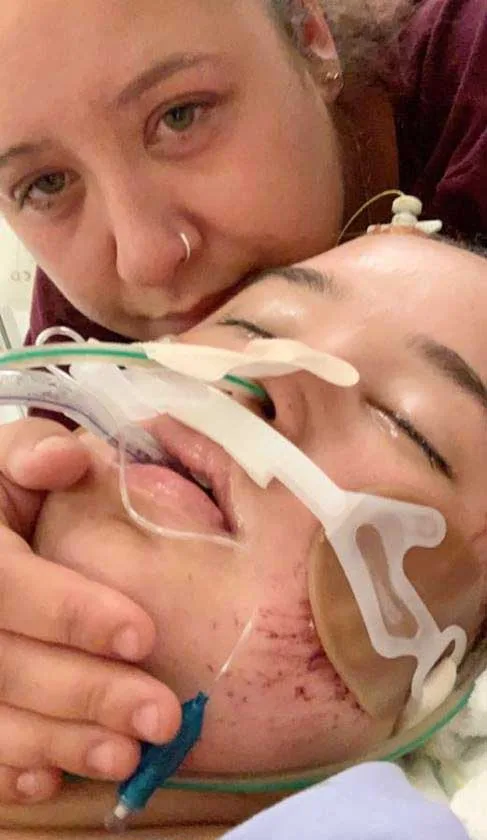
“It rips out a big part of your heart and soul, and you sit there wondering how you’re even going to survive,” she says. “We’re a really tight family, the sisters are super-close and none of us could ever imagine life without her.”
During Hollie’s first few days in hospital, family and friends from around New Zealand and Australia visited to say goodbye. Doctors told them Hollie’s chances of survival were unlikely and that if she did wake, she’d probably be in a complete vegetative state.
“Hollie’s father covered the night shifts while I did the days and we pretty much held a 24-hour vigil around her bed,” explains Dale.
“Her older sister was beyond heartbroken and her younger sister went into shut-down mode. I have some big blank moments too. You just go into survival.”
About five days into her coma, Hollie’s loved ones were given their first big decision. “They said they could take a piece of her skull out to help reduce the pressure in her brain, but they gave us terrible odds of 50/50 as to whether she’d survive the operation,” tells Dale.
“Then they said she had an 88% chance of becoming a complete vegetable if she woke, so we said no. She was a 16-year-old with a long life ahead, so we decided maybe that wasn’t the right thing for her.”
As Dale spent all her time at hospital with the support of David, who took leave from his timber-mill job in Te Puke, people suggested it was time they start letting go.
“They talked about turning off her life support, but in my absolute gut, my heart of all hearts, I knew she was going to survive,” says Dale. “I knew she was still with us.”
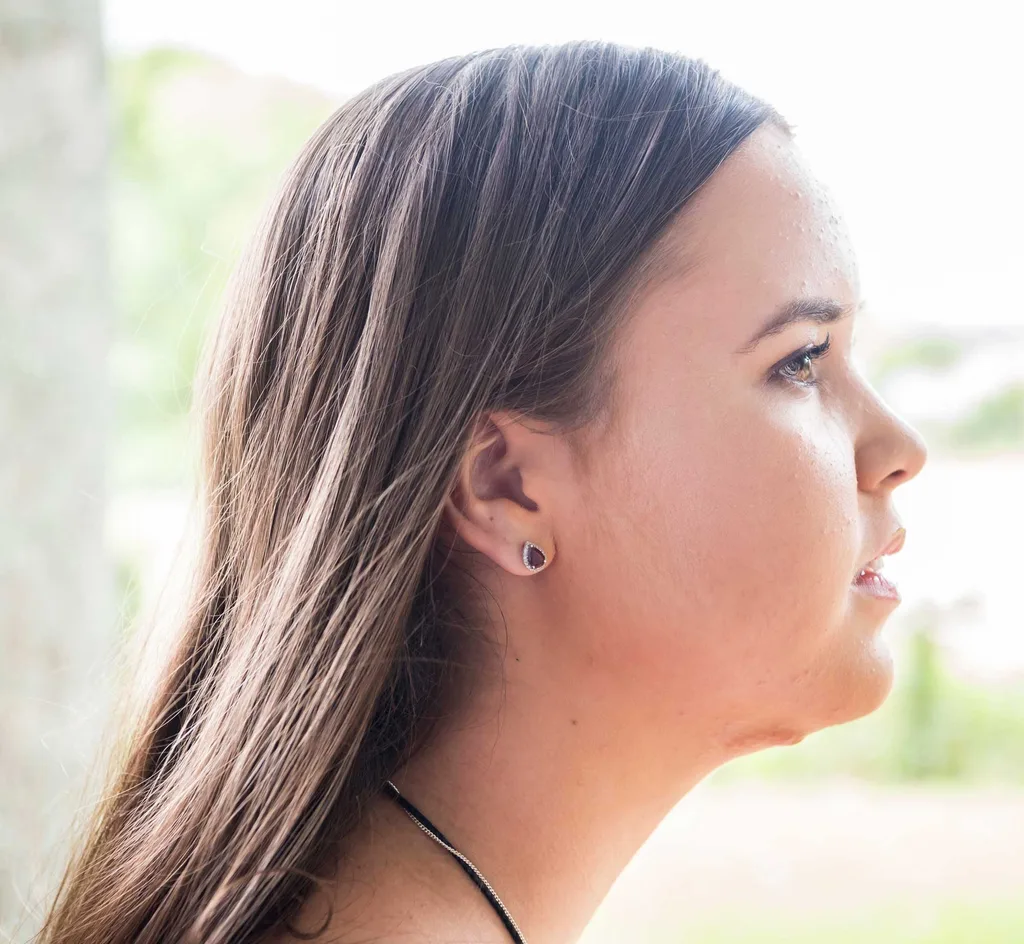
The only scar from the horror scene is one below Hollie’s chin.
For doctors to even consider turning off Hollie’s life support, there had to be 100% proof her brain had died. “We had a family meeting with the intensive care team who’d done a CAT scan and saw a bit of blood flow, but they thought it was highly unlikely it would continue,” recalls her mum.
While discussing their options, Dale mentioned organ donation.
“I remembered Hollie saying she wanted to donate her organs if something ever happened to her because the girls know I’m a donor. We discussed it in depth a few times because there’s a shortage of Maori donors, since it’s not really the tikanga way, and she really wanted to do it.”
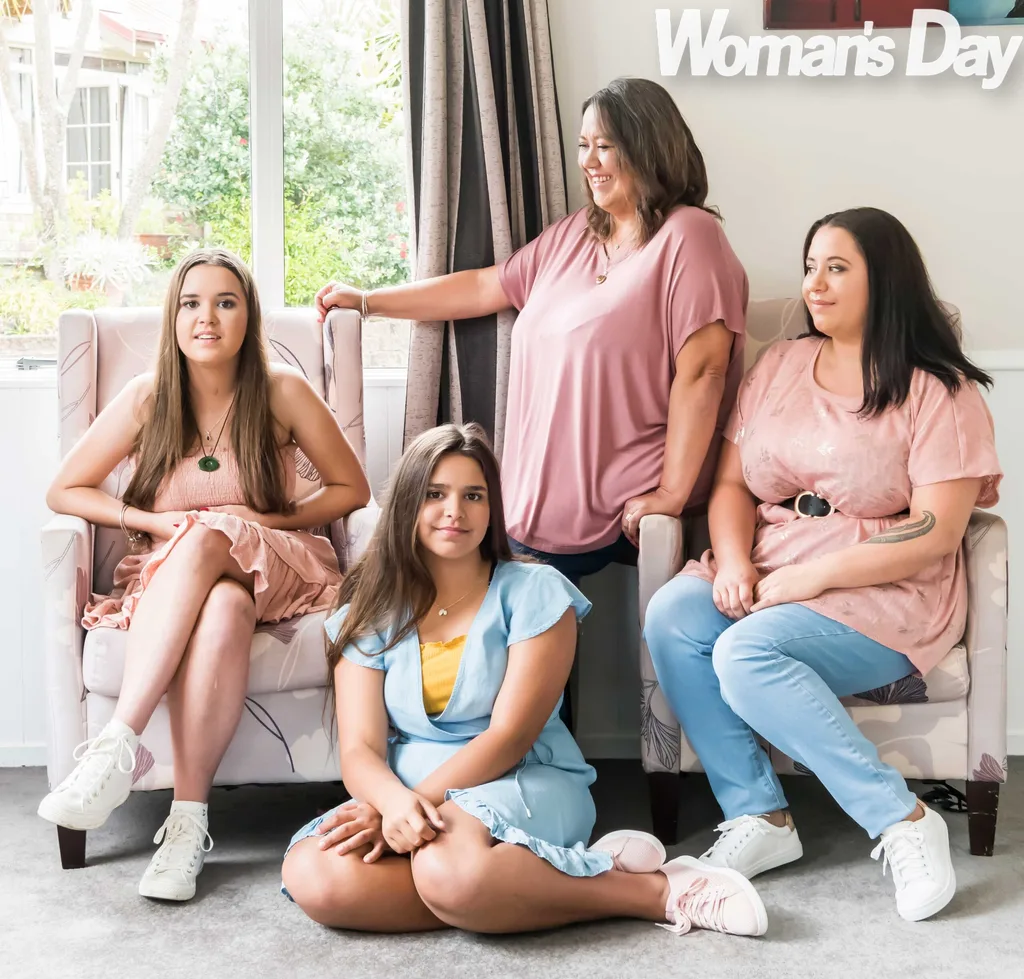
With mum Dale, and sisters Samantha (front) and Larnie.
As local media wrote stories about the brave teen who was leaving behind her precious organs as a final gift, Hollie’s loved ones went through the heart-wrenching clinical planning process.
But miraculously, less than two weeks after the accident, medical staff were blown away when an MRI showed the blood flow to Hollie’s brain had increased.
“We asked what it meant and they said they still believed the injury was unsurvivable, but they weren’t prepared to turn off her life support yet,” Dale beams. “I knew she was coming back!”
Faster than ever imagined, Hollie’s blood pressure settled to normal and the swelling in her brain went down. Then she started taking breaths on her own.
“She began to twitch and gave us a couple of hand squeezes,” tells Dale. “The first time she grabbed mine, I burst into tears.”
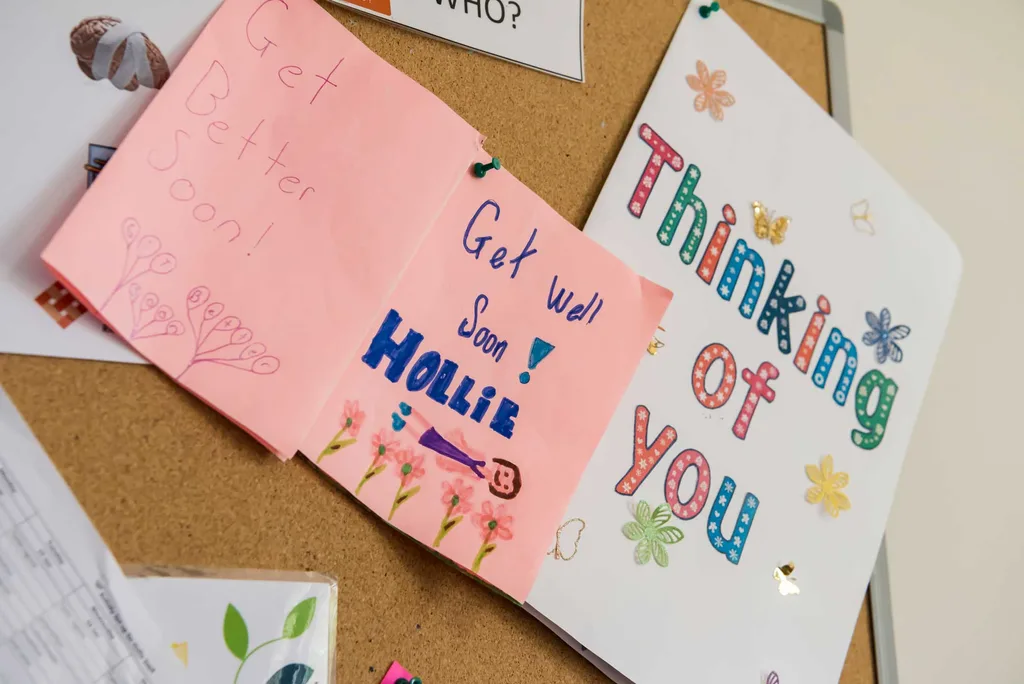
s she lies in a coma with sister Larnie beside her, messages from wellwishers – including some from kids she once babysat – adorn the ward walls.
The doctors moved Hollie from intensive care to the high dependency unit, where she went into an emerging consciousness stage, meaning she was no longer in a coma but was still unresponsive.
Shortly after, Hollie was relocated to the neurology ward. “I can remember tickling her face with her hair and she scrunched up her face, which was a milestone,” says her mum.
“The first time she sucked a sponge with a bit of water on it, her hand automatically went up and took it out. David and I jumped around crying, ‘Woo-hoo!'”
When Hollie’s family heard her giggle for the first time, the room filled with tears. “Her auntie said something funny and very inappropriate, and she gave a real giggle,” tells Dale.
A week before Christmas, exactly one month after the accident, Hollie arrived at the ABI Rehabilitation Centre. Although she couldn’t walk or utter more than a couple of whispers, she’d come further than doctors ever thought was possible.
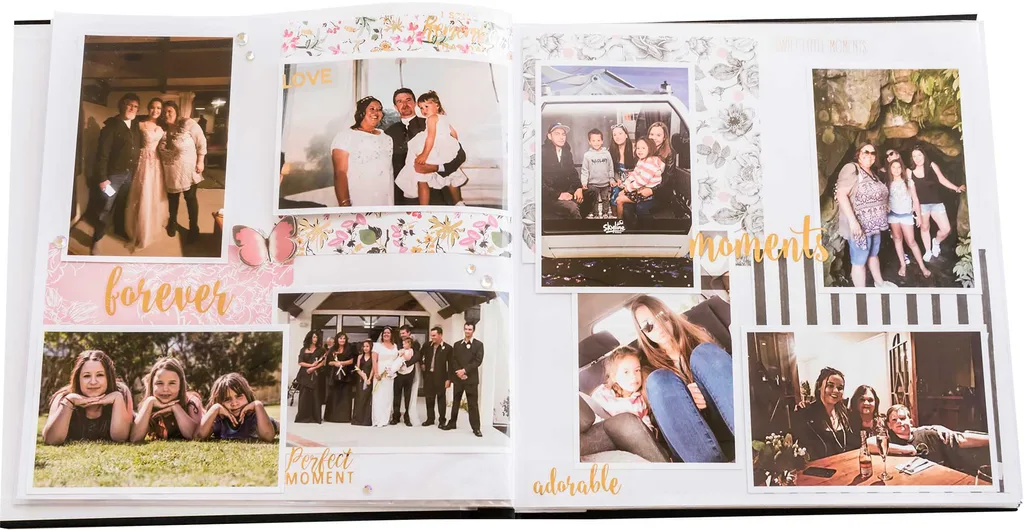
“She needed to relearn everything from washing her face and brushing her teeth, to writing and showing expression,” says Dale before erupting into laughter.
“When she started talking, it was randomly about zebras. It got stuck in her head and the word zebra replaced so many words. One day, she asked if I could brush her zebra!”
Now Hollie is working through post-traumatic amnesia, which is expected to disappear completely and follow with a full recovery.
Dale explains, “It’s like the movie 50 First Dates – she basically can’t remember what she did five minutes ago, but her long-term memory’s not so bad.”
A person Hollie easily remembers is her high-school sweetheart Keani. Since the accident, the Maketu local has spent every weekend with his girlfriend of almost five years, who he spoiled with a garnet gemstone jewellery set – her birthstone – for her 17th birthday in January. ”I’m used to it,” Hollie declares, her eyes lighting up at the sound of his name.
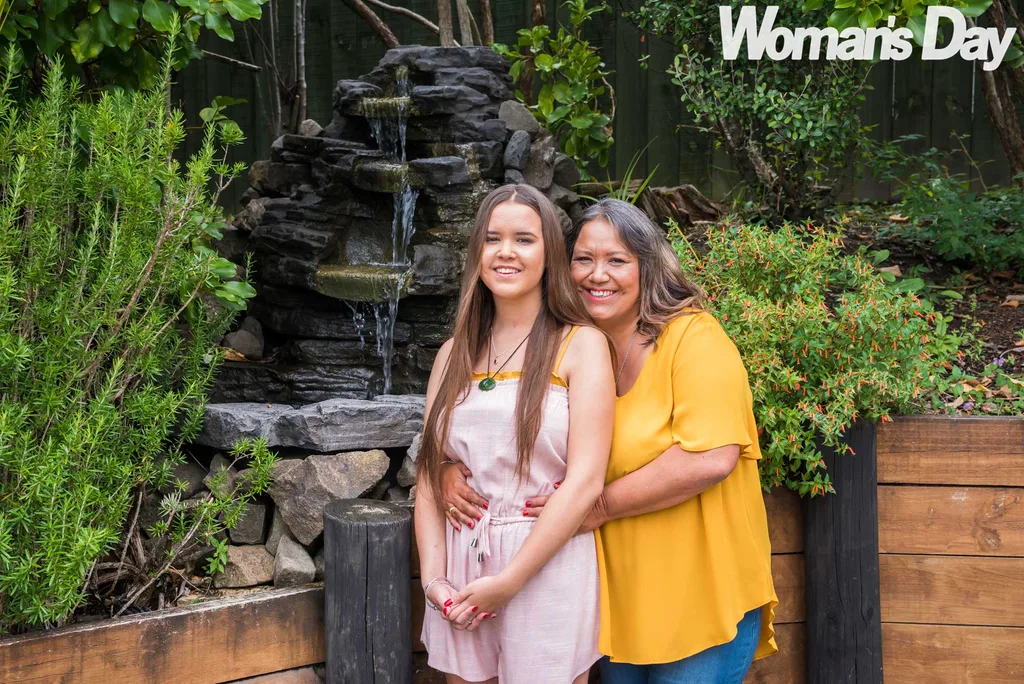
Hollie and her mum Dale.
Dale credits the young man, as well as her family’s sense of humour, in helping with Hollie’s astounding recovery.
She tells, “One of the kaumatua from Maketu, where Hollie spent a lot of time with Keani, told us she’s known as the jewel of Maketu because they are so blown away by her recovery.”
While Hollie’s family is grateful to have their “vibrant and sassy” girl with them, they admit to grieving the person she was.
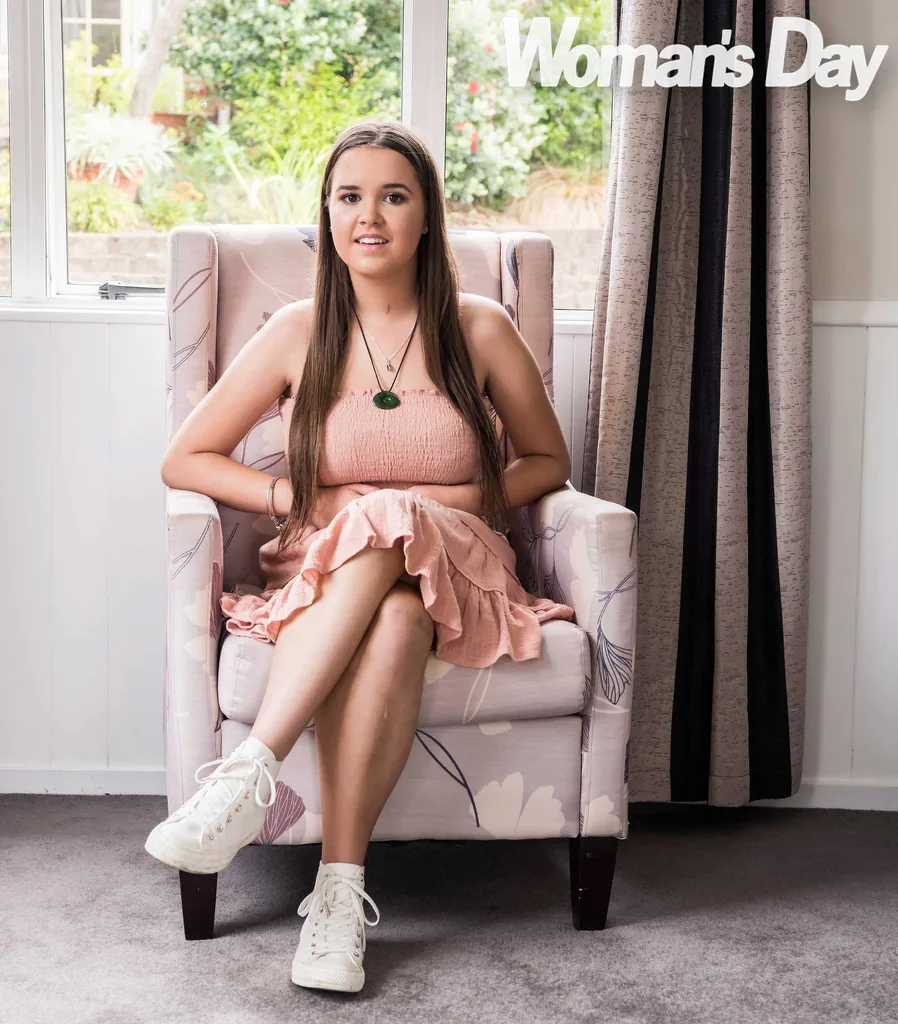
“She’s not the girl twerking on video or singing in the back of the car,” says Dale, adding, “but it’s only been two months.”
Within weeks, their lovely girl is expected to return home for the first time since the crash.
“It’s been such an emotional rollercoaster,” Dale says softly, glancing at the daughter beside her. “It’s a nightmare being told you might lose your child. But now look! We beat those odds, eh bubba?”
